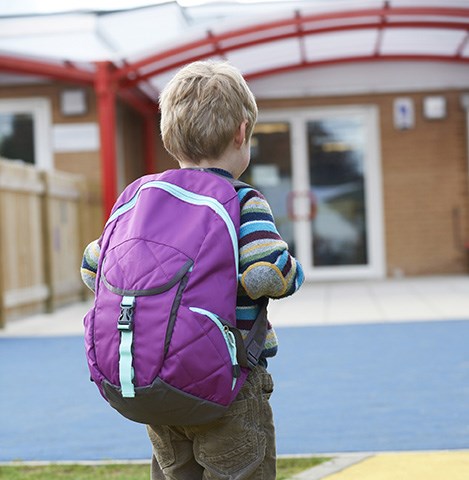Almost all Squamish kids are likely to feel a few butterflies in their stomachs as the first day of school approaches, but more acute anxiety is something for parents to pay attention to, doctors advise.
“Children and youth can build up a lot of stress and anxiety about having to get back into the routine and what to expect when the new school year begins,” said. Susan Baer, psychiatrist in the Mood and Anxiety Disorders clinic at BC Children’s Hospital, in a news release from Vancouver Coastal Health. “These feelings are normal and there are steps parents can take now to help ease the transition from summer break to the new school year.”
Psychiatrists recommend planning ahead by starting to adjust the bedtime and wake up routines so it is back to the school schedule by the first day.
Parents can talk to children about what is worrying them and perhaps role-play issues of concern, Baer said. With children heading to school for the first time, a trip or two to the school and playground may help put kids minds at ease.
For some kids, anxiety is more intense and needs to be addressed perhaps with a professional, Baer notes.
More severe anxiety might be the culprit if the child attempts to stay home rather than go to school, refuses to go on certain days, for example on field trip days; refuses to eat in public; refuses to use school bathrooms; worries constantly; shows signs of extreme shyness; has physical complaints with no medical explanation – such as stomach aches, headaches, difficulty catching her breath; throws tantrums suddenly, cries or screams or suddenly acts out of character.
Validating the child’s feelings is an important first step, according to Jana Davidson, psychiatrist-in-chief, BC Children's Hospital.
“Children don’t want to feel this way,” she said. “For some people their level of anxiety is higher than it needs to be, or our minds starts to create perceived threats.”
With extreme anxiety, parents can raise the issue with their child’s family doctor, Davidson said.
There are local child and youth mental health teams that parents can access, she added.
Keeping children home from school is not usually a good way to cope, according to Davidson.
“What happens with anxiety is it ends up being a bit of a feedback loop. If you avoid the things that are making you anxious, it reinforces the anxiety,” she said. “And makes the anxiety that much stronger.”
Schools are also much more equipped to tackle anxiety in children than they were in previous generations and so parents should approach the child’s teacher, school staff and administration to explain the situation and seek help, Davidson said.
Even children with intense anxiety can learn to cope, she added.
“That is the wonderful thing about kids. They can be very challenged, but they also learn and can develop tools and skills.”
Online resources, such as www.anxietybc.com, can offer helpful advice for parents as well, she said.



